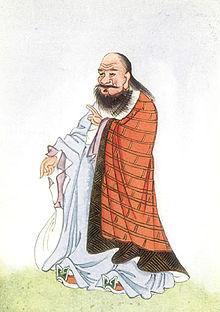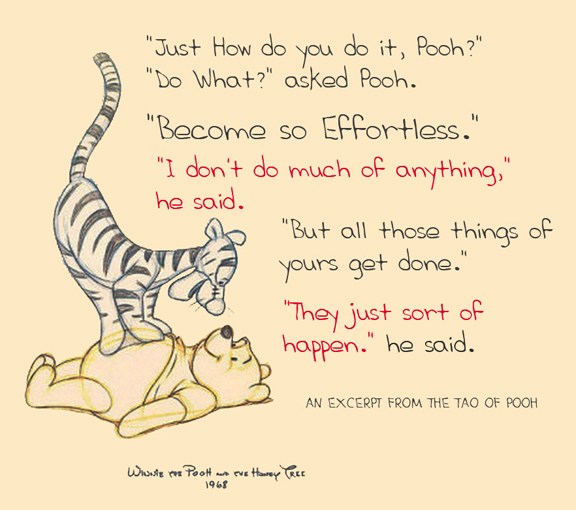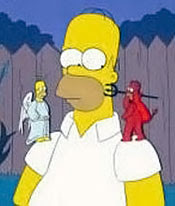Zou Wang Lun
In this series I will introduce the Taoist meditation classic, Zou Wang Lun. This can be translated a number of ways but my favourite is "to sit and forget yourself". The author of the work is Si Ma Cheng Zhen and it was written in the Tang dynasty, making the text well over a thousand years old. It's considered one of the definitive works on Taoist meditation or Nei Guan (Internal Observation). Even if you're not looking for self realization this tradition can still help you calm the incessant mind and find some peace in a world that can be chaotic at times.
For Si Ma Cheng Zhen every human was capable of what the Taoist call immortality or self realization. In order to attain this Master Si Ma recommended three things,
- Xiu Wo Xu Qi - To cultivate the breath of emptiness
- Zuo Wo Zi Ran - Follow ones own nature
- Yu Dao Xiang Shou - Remain in harmony with the Tao

The text we'll slowly get to know contains what are called the 7 stages. We can think of these as signposts along the way, we are being offered guidance by those who have gone before. The 7 stages will take us on a step by step journey, providing the insight and advice into our daily lives to ultimately achieve the calm and peace we all desire and need. In conjunction with these guidelines a meditation practice should also be undertaken, for advice on meditation CLICK HERE. So if you've got your cup of tea ready lets start the journey with passage number 1.
Trust and Respect
This passage starts with the phrase trust is the root of the path and respect is the stalk of virtue. Within all Taoist writing references to nature are extremely common and luckily for us easy to understand. Without the root a plant has no nurturing, no growth and will wither, with roots now we can build a stalk which will eventually support the open flower. What we are being shown are the roots, the foundation. without this all else will falter, with this we can walk the path with confidence. The first stage is to build a strong foundation that we can then build upon. The analogy with nature is also a reminder that this is a process, the roots, the stalk then the flower, we can't jump straight to the end. We must be willing to stay the course, in this particular event its always the tortoise that wins.
So what do we mean by Trust and Respect. Lao Tzu in the Tao Te Ching says, "without the existence of trust mistrust arises" We are being told to trust in our path, to trust in the method. This is a notion I've seen in Qi Gong classes with the advice to "chop off your head", meaning don't think so much, feel what you're doing but also trust in the teacher they know the path you don't. So in a way we being asked to trust Master Si Ma. To trust in the process and the way. A healthy trust will then result in a healthy respect for the method, for the Tao. Trust is also important as later down the line some of the signposts may make us question deeply held beliefs.

Our natural tendency may be to push the truth away. At this time we need trust to at least give the process a chance and continue on the path.
I also think these teachings can be taken on many levels, in another way we are also being asked to trust ourselves. This may be much harder to do than we initially think. Most of us continually question everything we do, how would it feel not to do that? How would it feel to trust yourself? That doesn't mean you're always going to be right but it does mean you're always going to be you. I think it was Winston Churchill who said wherever you go, go with all your heart, for me this is similar advice. Don't doubt yourself have faith, trust in you. With that trust will naturally arise a respect or a virtue, our actions begin to change, not because we are trying to be good people or live up to some social norm but because we are being authentic. Virtue is not about morals and ethics its about acting authentically, being who you truly are, what the Taoists would call being one with the Tao. In this context all actions are virtuous by definition.
Breaking Ties
In passage 2 we are encouraged to break ties.Our ties are all those things that bind us to our past and future. It's the identity we have built up throughout our whole lives, our thoughts, ideas even to some degree our personality which has often been shaped by family, friends, even geographical location of birth. How much of you is actually you?
I personally believe setting out on any journey like this is the most revolutionary thing you can do. Master Si Ma is encouraging us to look at this as a re-birth, what the Taoists might call reclaiming the Tao. Maybe it's time to question our beliefs, to try something new, something revolutionary. In short we are being offered a way of experiencing life without becoming a prisoner to it.

I've also heard the analogy of the cat playing with the rat. Life is the rat and you are the cat, so ask yourself the question, are you playing with the rat or is life playing with you?
Within this passage Master Si Ma talks about abandoning "impure activities" and "intentional actions". So what do we mean by these two phrases? An impure activity would be anything that moves us away from our true nature. Again we are not talking about a concept like sin, this is not a way of condemning humans as sinful. With the concept of yin yang we know everything has an opposite, so as we judge something as a pure activity we have also defined something else as an impure activity. I find this can be a tricky area as it often leads to lists of dos and don'ts which I feel is a diversion from the actual path.
So lets dive into this concept a little deeper. Remember stage 1 and developing trust and respect? Consider this stage a natural occurrence of that one. There is a very important concept in Taoism known as Wu Wei, often translated as non doing or non action. The saying goes "I do nothing but everything is done". However the best translation I've heard came from a Tai Chi teacher who said Wu Wei is "non preference".

When we follow this logic through we find a state of being that is not influenced by the external changes happening around us. We have no preference for anything external, in this scenario the cat is truly playing with the rat.
Now I know you may be sat there thinking, but Andrew I don't want to be an enlightened immortal, I just want to sleep better, or not get so angry about things, or just feel a little less stressed. Well you're in luck, another Tai Chi teacher referred to Taoism and Tai Chi as the natural way. These ideas are trying to return you to your natural state, again the idea of reclaiming the Tao. As such the process may be challenging at times but all you are really doing is moving more closely to who you actually are. So worry not as even small steps along the path can bring rewards in health and wellbeing.
Now returning to the concept of impure actions, this maybe as simple as staying up till 1am when our body is telling us it wants to sleep at 10. Part of this advice is to listen to our naturally rhythms and respect them. See that word respect again, when we trust and respect ourselves our actions will naturally change over time.
Intentional action is similar again to theconcept of Wu Wei. This basically means are we acting a certain way to get something we want. I'm sure we've all at some point been extra nice to somebody because they had the power to do something we wanted. A good example would be a little kid being very sweet and nice to get the ice-cream from the freezer because they can't reach it. It's something we all do but we must ask ourselves first am I being authentic, are my actions virtuous and second are we becoming a prisoner of life, changing our very nature to quench a desire external to us.

And I think for now we will leave it there. If you have the inclination why not start working on trusting yourself, showing you the respect you deserve. Also maybe consider the teachings that have been shared here, consider there history and there lineage. These Masters have travelled the same path, overcome the same challenges, so why not take advantage of that wealth of knowledge that has been passed down through many generations. Consider your own ties, what is your own identity? Mother? Father? Intelligent? Sporty? we all define ourselves in different ways. So just for a moment consider the possibility that you are non of those things, whatever label you come up with is not you. The natural question then arises that if I'm not any of these things, what am I? And so the quest begins...
Below is a video by Alan Watts, if you've never heard him speak I would highly recommend taking a listen. here he talks about the concept of wu wei